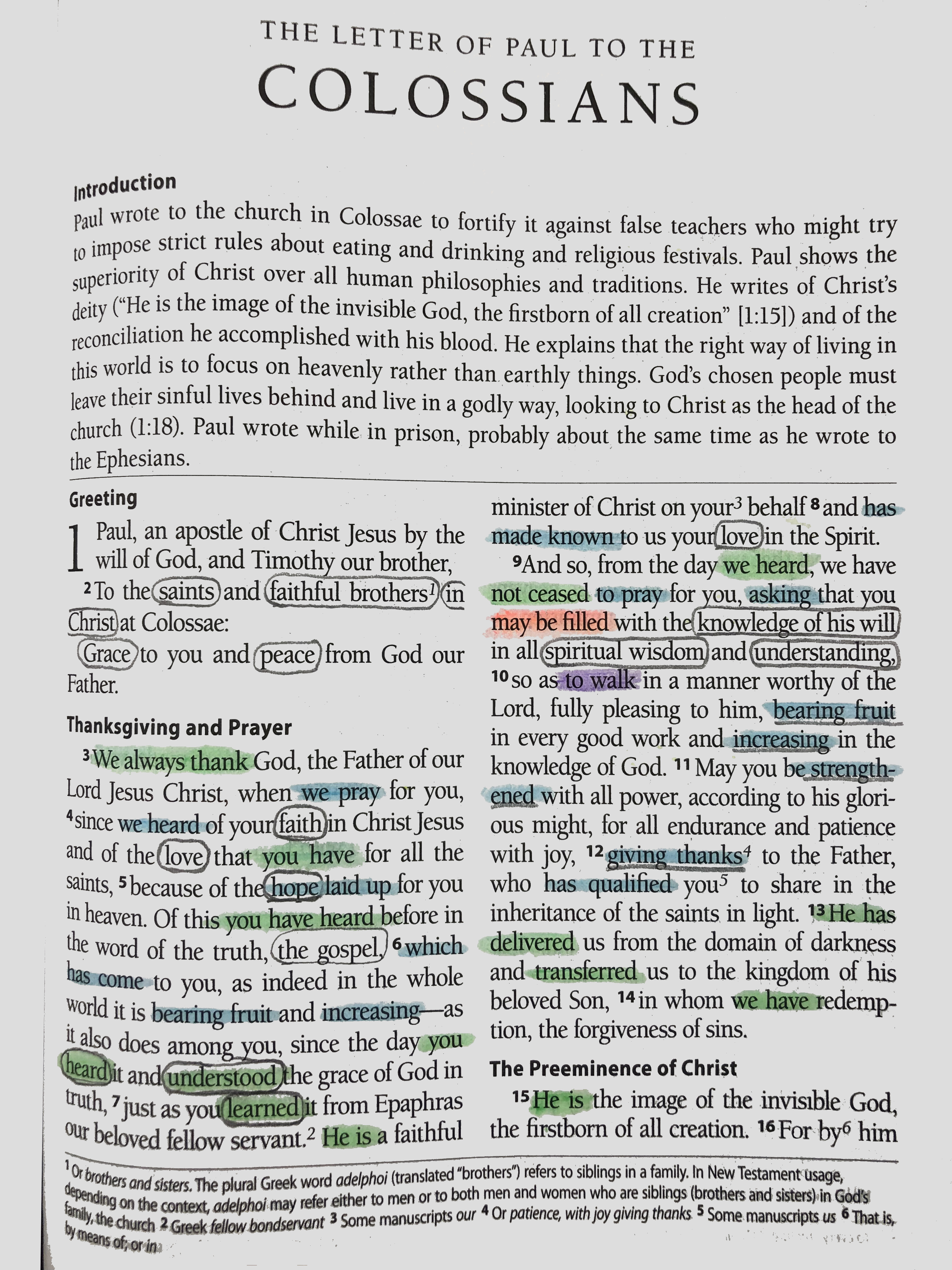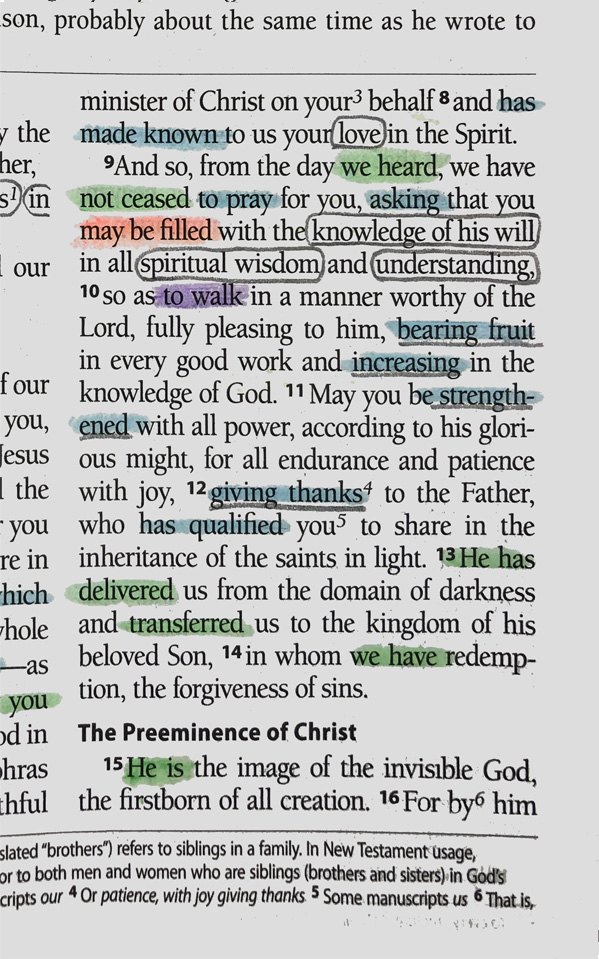“In Accordance with the Gospel” 1 Timothy 1:1-11 Bible Study 06/02/19
-Because the gospel is the good news of God’s surpassing worth, treasure and transmit it faithfully.
1. Prioritize the presence of God (1-2)
• ground of hope
• grace, mercy and peace
• grace, mercy and peace
2. Promote stewardship rather than speculation (3-7)
• instruct “certain persons”
• don’t teach different doctrine
• don’t devote yourself to wrong thinking
• remember the goal
• the danger of spiritual arrogance
• don’t teach different doctrine
• don’t devote yourself to wrong thinking
• remember the goal
• the danger of spiritual arrogance
3. Process the law properly (8-11)
• using the law lawfully
• understand the identity of its target-audience
• 14 examples rooted in the 10 Commandments
• the standard of “hygienic” doctrine
• according to the gospel of the glory of the blessed God
• understand the identity of its target-audience
• 14 examples rooted in the 10 Commandments
• the standard of “hygienic” doctrine
• according to the gospel of the glory of the blessed God
4. So What?
• “How firm a foundation, ye saints of the Lord, is laid for your rest in His excellent word. What more can He say than to you He has said, to you who for refuge to Jesus have fled?” (R. Keene)
• “Jesus, priceless treasure, source of purest pleasure, truest friend to me…Thine I am, O spotless Lamb, I will suffer naught to hide Thee, ask for naught beside Thee.” (J. Franck)
• Avoid “Jiminy Cricket” theology.
• Get your spiritual meals from divine revelation rather than human speculation.
• Text-driven truth promotes spiritual health!
• “Jesus, priceless treasure, source of purest pleasure, truest friend to me…Thine I am, O spotless Lamb, I will suffer naught to hide Thee, ask for naught beside Thee.” (J. Franck)
• Avoid “Jiminy Cricket” theology.
• Get your spiritual meals from divine revelation rather than human speculation.
• Text-driven truth promotes spiritual health!












